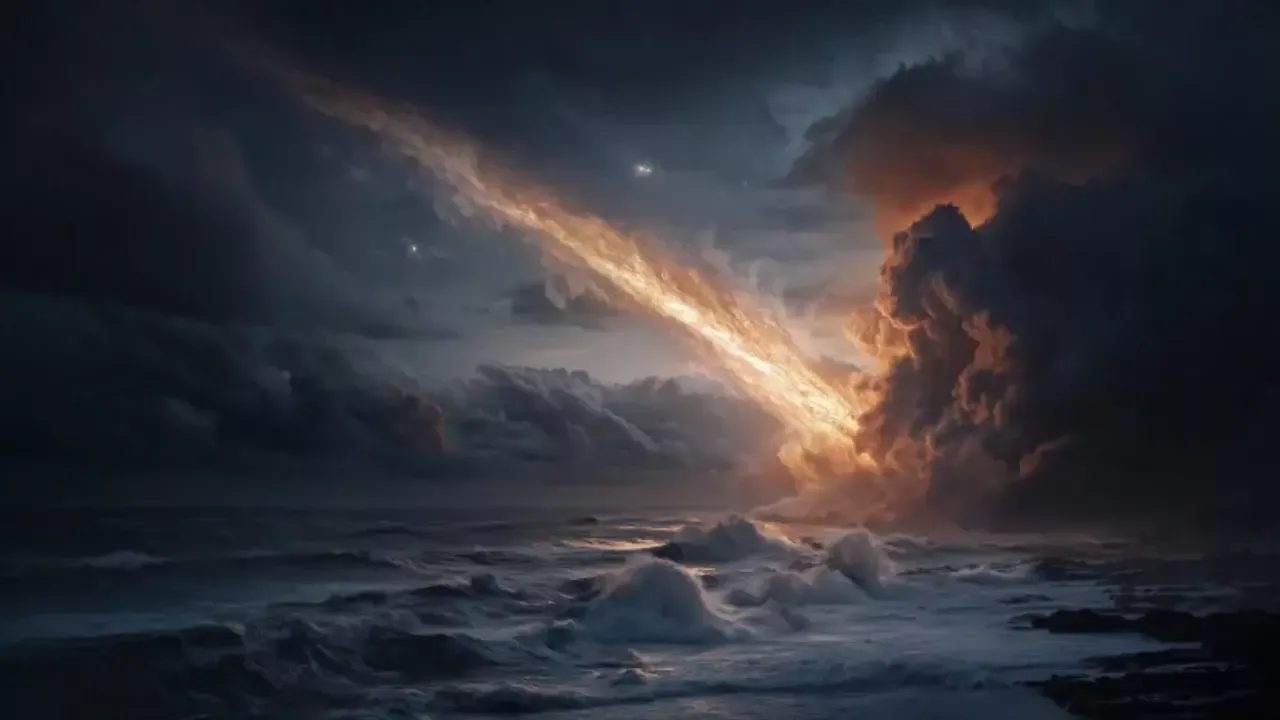Traces of a comet from 12,800 years ago were found

Recent scientific research has unveiled new secrets of a cosmic event that caused significant changes in human history. This was reported by Zamin.uz.
In collaborative research conducted by Western and Russian scientists, definitive traces of a comet that collided with Earth 12,800 years ago were found at the bottom of Baffin Bay. This discovery helps to better understand the impact of cosmic events on climate and the development of civilizations on Earth.
A team of scientists led by Professor Christopher Moore from the University of South Carolina thoroughly studied geological samples taken from the seabed from molecular and geochemical perspectives. As a result, metals such as platinum, iridium, nickel, and cobalt were found in high quantities, confirming that their origin is not natural but rather from a cosmic source.
According to Vladimir Selmovich, a specialist at the "Borok" geophysical observatory of the Russian Academy of Sciences' Institute of Earth Physics, such cosmic collisions have caused climate crises on Earth and led to the extinction of some ancient civilizations. The comet collision approximately 12,800 years ago triggered a global cooling, marking the beginning of the Ice Age.
Scientists who examined the morphology and composition of micro-particles identified them as remnants of the comet. The cosmic dust that spread into the Earth's atmosphere resulted in a significant cooling on our planet for a short period, lasting about 1,400 years.
This discovery further proves the significant role of cosmic events in global climate changes, the animal and plant world, and the extinction of ancient civilizations. The recently published research holds great importance not only for science but also for humanity's past and future.
It is recommended to continue monitoring new scientific findings regarding the role of cosmic events in Earth's history and their impact on climate change. These discoveries once again highlight the necessity of searching for natural phenomena not only on Earth but also in the cosmos.
Stay tuned for new information about cosmic mysteries and significant changes in Earth's history.







